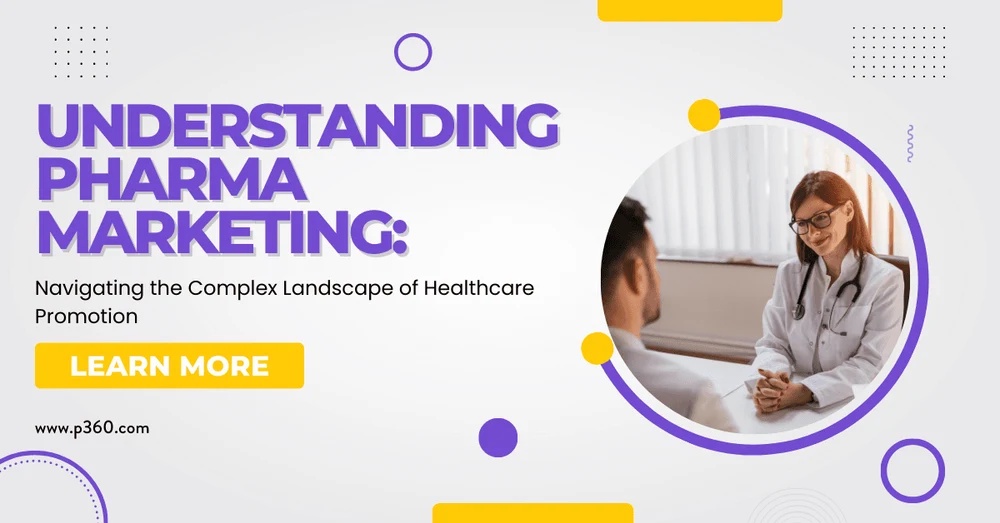In business leadership, there's a common misconception that sales and marketing are interchangeable functions, both aimed at increasing revenue. However, they operate on distinct principles and strategies. Marketers often prioritize brand equity and customer engagement, while sales teams focus on immediate conversions. Yet, both are integral, and sales rely heavily on marketing for success. This is particularly evident in the pharmaceutical industry, where the rise of digital marketing emphasizes the need for a comprehensive understanding of how marketing operates. To navigate this landscape effectively, it's crucial for business leaders to grasp the essence of pharmaceutical marketing, which serves as the cornerstone for promoting healthcare products and brands.
Pharmaceutical Marketing: A Strategic Overview
Pharmaceutical marketing, often referred to as pharma marketing, is a set of activities aimed at increasing awareness and loyalty to pharmaceutical brands and products. Pharmaceutical marketing aims to create a positive brand image of the drugs and the companies that manufacture them.
Target Audience
To create product awareness and drive demand it is crucial that pharma marketers know their target audience. The primary audience of pharmaceutical marketing are healthcare professionals and patients. For healthcare professionals, including physicians, pharmacists, and nurses, pharmaceutical marketing endeavors to provide comprehensive information about the benefits, risks, and usage of various drugs. By fostering educational initiatives, pharma marketers aim to improve prescribing behavior and ensure that HCPs have access to the latest clinical data and treatment guidelines. At the same time, pharma marketing patients and caregivers to promote products and create brand awareness.
The Impact of Digital Innovation
In recent years, the advent of digital and mobile technologies has revolutionized the landscape of pharmaceutical marketing.
Pharma Digital marketing tactics, such as interactive websites, social media outreach, and targeted advertisements, have become important tools for reaching both healthcare professionals and patients. Through personalized content and engagement strategies, pharma companies can effectively spread information, raise awareness about health issues, and promote their products in a manner that resonates with modern audiences.
Similarly, Pharma mobile marketing platforms, such as the ZING Engagement Suite, offer direct channels of communication between pharmaceutical representatives and healthcare professionals.
Direct-to-Consumer Advertising (DTCA)
Direct-to-consumer advertising (DTCA) represents another significant aspect of pharmaceutical marketing, focusing on promoting prescription drugs and medical services directly to patients. While it has its share of criticism, DTCA remains a popular marketing channel. However, pharmaceutical companies must exercise caution to ensure that their advertisements are accurate, informative, and compliant with regulatory standards.
Events and Educational Programs
In addition to digital initiatives and consumer outreach, pharmaceutical marketing flourishes through conferences, events, and educational programs. These forums provide valuable opportunities for healthcare professionals to exchange knowledge, learn about new products, and engage with industry experts. By sponsoring and participating in medical conferences, pharma companies showcase how their products can offer solutions to everyday healthcare issues.
The Role of Pharmaceutical Sales Representatives
Pharmaceutical sales representatives remain an important part of pharma marketing, serving as liaisons between companies and healthcare professionals. Equipped with in-depth product knowledge and industry insights, sales reps play a vital role in delivering tailored solutions, addressing customer needs, and fostering meaningful relationships within the healthcare community.
Challenges and Considerations
However, navigating the realm of pharmaceutical marketing is not without its challenges. Regulatory compliance, changing healthcare landscapes, and ethical considerations present ongoing hurdles for pharma marketers. Achieving a balance between effective promotion and adhering to regulations requires careful navigation, while maintaining transparency and integrity is crucial for building and retaining trust with stakeholders.
Future Perspectives
Looking ahead, the future of pharmaceutical marketing holds vast potential for innovation. As technology continues to evolve, pharma marketers must remain agile, adaptable, and committed to advancing public health. By embracing emerging trends, leveraging digital strategies, and prioritizing ethical practices, pharmaceutical marketing will continue to serve as a driving force behind transformative healthcare solutions.
Conclusion
Pharmaceutical marketing is far more than just a promotional tool—it is a cornerstone of progress in healthcare. As we navigate the complexities of this dynamic field, let us recognize its indispensable role in shaping the future of medicine and improving the lives of individuals worldwide.
To learn more about all P360’s innovative products, visit P360.com


No comments yet